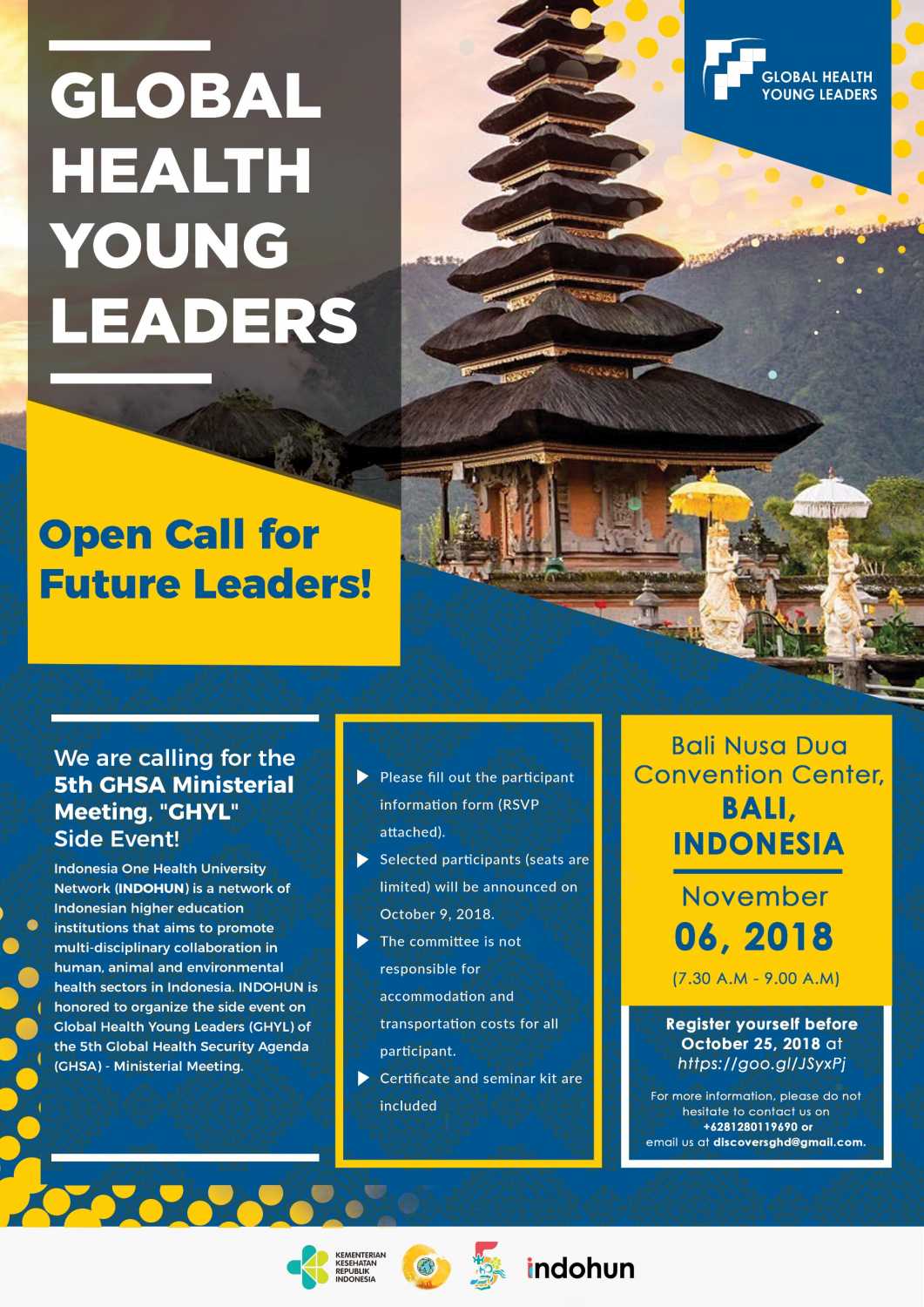 The world is facing diseases of tomorrow that are inevitable and unpredictable. It appears as new infectious diseases causing global societal and economic impact related to unexpected illness and deaths, as well as interface with travel, business, and many normal life activities. According to Coordinating Ministry for Human Development and Cultural Affairs, 70% of infectious disease origins from zoonotic diseases- a disease transmitting from animal to human and vice versa. It shows that more than one aspect could be related to the disease. Therefore, it needs collaboration and coordination among health and health-related workforce or it can be called as One Health workforce.
The world is facing diseases of tomorrow that are inevitable and unpredictable. It appears as new infectious diseases causing global societal and economic impact related to unexpected illness and deaths, as well as interface with travel, business, and many normal life activities. According to Coordinating Ministry for Human Development and Cultural Affairs, 70% of infectious disease origins from zoonotic diseases- a disease transmitting from animal to human and vice versa. It shows that more than one aspect could be related to the disease. Therefore, it needs collaboration and coordination among health and health-related workforce or it can be called as One Health workforce.
In the interconnected world that we live in today, an increasing range of health issues know no national boundaries. It brings health as an important global public good and collective global actions seen as fundamental to improving people’s health. Therefore, global health issues pose broad economic and socio-political implications, bringing a diverse range of state and non-state actors coming from different fields such as public health, international relations, law, economics, and management into the arena. At the heart of this new trend in our global governance, global health diplomacy has become an important growing arena that encompasses multi-level negotiation processes between the diverse actors at the intersections of health and foreign policy.
As a result of several working groups and research conducted by USAID Emerging Pandemic Threats Program, One Health workforce has several important competencies that must be understood and implemented. It is divided into 2 terms, hard skill and soft skill. For the soft skill, there are leadership, collaboration, management, communication, culture and belief, values and ethics, and system thinking. Then, for hard skills, there are One Health concept and knowledge, ecosystem health, fundamental of public health, behavioral change, infectious disease management, epidemiology and risk analysis, and fundamental of infectious disease. In term of professional, One Health workforces need a strong capacity of prevents, detect, and respond to infectious diseases threats among stakeholders.
Building upon the success of the previous GHSA Ministerial Meetings, the Government of Indonesia is honored to host the 5th GHSA Ministerial Meeting in Nusa Dua Convention Center Bali on 6 – 8 November 2018. The meeting aims to taking stock of GHSA achievements and challenges encountered, including unprecedented ones, and to chart the way forward. Under the theme “Advancing Global Partnerships”, Indonesia One Health University (INDOHUN) is honored also to organize the side event of “Global Health Young Leaders”. This side event sets to introduce and elaborate existing health workforce training and best practices in health advocacy to gain possible partnerships at the global and regional levels, as well as a deeper engagement to the Global Health Security Agenda Consortium. In this side event, you can have intellectual discussions involving perspectives from the Global Health True Leaders, Global Health Diplomacy, and lessons learned from One Health Systems Mapping and Analysis Resource Toolkit. There will also be launching session for Global Health Corps, School of Global Health Diplomacy, and Global Health Fund.
Interested to take your part in advancing global youth partnership? Join Global Health Young Leaders Now! tiny.cc/joinGHYL2018
